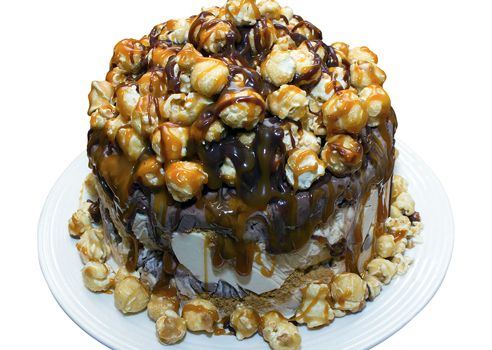Reading time: Less than 3 minutes
Sometimes, being “sticky” is a desirable trait. At other times, it’s a bad idea. Here’s how to figure out if you’re using too many sticky words….
Ever since Chip and Dan Heath wrote the 2007 bestselling book Made to Stick, many of us have seen the word “sticky” as a compliment. “What a sticky idea,” we might say with delight, indicating the idea is powerful, compelling and memorable. The correct synonym for sticky is, clearly, “unforgettable.”
But today I’m going to ask you to turn that concept on its head. Think back to when “sticky” meant a toddler’s fingers after eating a caramel-crunch ice cream cone. Or a preteen’s fingers after prying a piece of bubblegum off the underside of a desk. Or your own fingers after accidentally finding some pitch on a tree or a branch. In all of those cases, “sticky” is a messy, uncomfortable sensation — one you’d likely prefer to avoid.
But did you know you can also apply the label “sticky” to some of the words in the sentences you write? Also known as “glue words,” these are the empty spaces that readers must push themselves through before they can get to your ideas. Visualize your readers as people trying to cross a kitchen floor marred by semi-dried blobs of ketchup, spilled milk or soda and squirts of honey. The more spills on the floor, the harder it is for them to get across without getting their feet mucky.
Here is a partial list of sticky words:
- So
- If
- Than
- But
- About
- In
- On
- The
- Was
- For
- That
- Said
- A
- Of
- To there
- Will
- Be
- What
- Get
- Go
- Think
- Just
- Every
The concept of “glue words” is usually credited to Richard C. Wydick, a retired professor of law at the University of California, Davis. His book, Plain English for Lawyers —now in its fifth edition— has been a favorite of law students, legal writing teachers, lawyers, and judges for more than 25 years. Here is how he explains the idea:
“In every English sentence are two kinds of words: working words and glue words. The working words carry the meaning of the sentence. In the preceding sentence, the working words are these: working, words, carry, meaning, and sentence. The others are glue words: the, the, of, and the. The glue words do perform a vital service. They hold the working words together to form a proper, grammatical sentence…. But if the proportion of glue words is too high, that is a symptom of a badly constructed sentence. A well-constructed sentence is like fine cabinetwork. The pieces are cut and shaped to fit together with scarcely any glue.”
Now before you say to me, “but I couldn’t write without any glue words — they’re so common,” notice that no one is proposing you try. Instead, the idea is to minimize them. As Wydick acknowledges, these sticky words perform a vital service.
Ideally, your sentences should contain fewer than 45% glue words. If they contain more, rewrite them to improve their clarity. Here are some examples.
ORIGINAL: Morgan walked over into the second-hand car lot in order to see if there was a car she could buy for getting herself to her new job.
Original sentence length: 27 words
Sticky words: over into, in order, getting herself to
Improved version: Morgan checked the second-hand car lot for a car she could buy to drive to work.
New sentence length: 16 words
ORIGINAL: In regards to tomorrow’s event, the main focus should be on keeping all participants fully engaged and feeling as though they are valued customers.
Original sentence length: 24 words
Sticky words: in regards to, main, as though
Improved version: At tomorrow’s event, we should concentrate on making our customers feel valued.
New sentence length: 12 words
ORIGINAL: Despite what I went through, I want to think outside of the box and make my boss understand how valuable my efforts are to the company.
Original sentence length: 26 words
Sticky words: despite what I went through, outside of the box, my efforts
Improved version: I can use even my difficult experiences to help my boss understand how valuable I am to the company.
New sentence length: 19 words
Sometimes a sentence will only work if it’s sticky. Don’t panic! Having a few sentences like that is okay. Just don’t have too many of them or you’ll slow your readers so much they’ll never cross the kitchen floor — or read to the end of your piece.
How do you identify and eliminate sticky words in your writing? We can all learn from each other so, please, share your thoughts with my readers and me in the “comments” section, below. And congratulations to Alexey Mitrofanov, the winner of this month’s book prize, Writing to Learn by William Zinsser for a June 13/17 comment on my blog. Anyone who comments on today’s post (or any others) by July 31/17 will be put into a draw for a copy of Business Writing and Communication, by Kenneth W. Davis. To leave your own comment, please, scroll down to the section, directly underneath the “related posts” links, below. Note that you don’t have to join the commenting software to post. See here to learn how to post as a guest.

